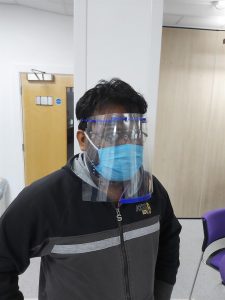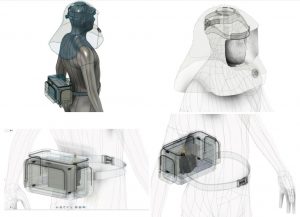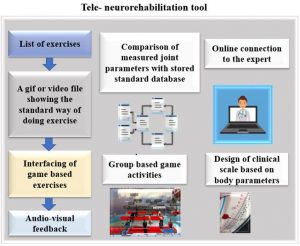Dr. Soumya Kanti Manna, Program Director (Bio-Medical Engineering) answers questions on what will be the future job market? Who will be the key professional in the new normal? Which of the emerging fields will recruit more graduates?
Currently these questions wobble most of the young minds who are about to start their university degree program in engineering. The answer is quite simple— any engineering field related to medical industry and the closest one is biomedical engineering. The impact of COVID-19 affected all sectors especially healthcare, therefore hospitals, nursing home and care home have been facing lack of adequate PPE for frontline workers, critical medical equipment such as face shield, ventilator, respirators etc [1]. World health Organization realised that the medical sector need to be more sophisticated and advanced [2] in order to handle unknown virus and diseases such as COVID-19, therefore the world would need more biomedical engineers to develop and maintain those equipment.
The School of Engineering, Technology and Design at Canterbury Christ Church University delivers CDIO based professional BEng (3 years)/BEng Foundation year (4 years)/ MEng (4 years) degree programme in Biomedical engineering. The school have secured £13.7M in government (SELEP and HEFCE) & charity funding to create facilities reflecting the needs of engineering sector in the new normal. The new £65m building opens up major opportunities for students to study in fantastic new facilities such as inspirational learning environment, industry-standard hi-tech workshops, research and innovation hub.
Canterbury Christ Church University become one of few UK universities to be accepted to the international CDIO (Conceive-Design-Implement-Operate Initiative) – a community pioneered by the world-renowned Massachusetts Institute of Technology. In this approach, students will get the opportunity to work on industrial projects and to interact with industry professionals from year one. There are 28 highly qualified academics in the school with 12 of them from BAME background.
The areas of expertise are utterly diversified including Mechatronics, Medical robotics, FEA, CFD, Advance Manufacturing, Artificial intelligence, Forensic science Laser Fabrication, Internet of Medical Things, Visual Analytics and so on. CCCU engineering colleagues and East Kent NHS trust have been working collaboratively on several biomedical projects to contribute to the national effort in supporting the frontlines (NHS personnel, GPs, Care-workers, Care-assistants, residential-home-workers, Parole officers, etc) such as;
- Face shield for NHS workers,
- Respiratory hood for medical professionals to support aerosol-generating medical procedures,
- An on-line tool to support neuro-Rehabilitation physio exercises for recovering stroke patients in their own home,
- Automated bed porter to aid social distancing of patient transportation around a hospital.
The Canterbury Christ Church University is committed to providing excellence in higher education: transforming individuals, creating knowledge, enriching communities and building a sustainable future using holistic and inclusive engineering solutions to meet societal challenges and local company’s needs.
Click here for more information about our Bio-medical Engineering (BEng) Course.
References
[1] Ranney, M.L., Griffeth, V. and Jha, A.K. (2020), “Critical supply shortages—the need for ventilators and personal protective equipment during the Covid-19 pandemic”, New England Journal of Medicine, 382(18), p.e41.
[2] World Health Organization (2020), “Reconfiguring health systems vital to tackling COVID-19”, [online at] https://www.euro.who.int/en/countries/spain/news/news/2020/4/reconfiguring-health-systems-vital-to-tackling-covid-19.
 Engineering, Technology and Design
Engineering, Technology and Design Gareth Ward
Gareth Ward 1275
1275




